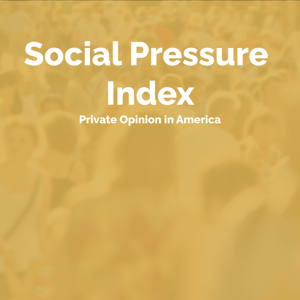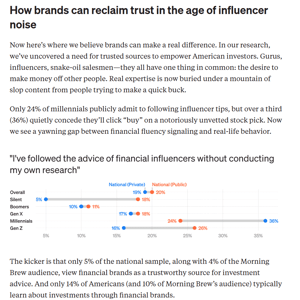
Private Opinion Research
We understand—learning new things about an audience that you thought you already understood is unsettling.
But the cost of being wrong is even scarier
Success is conditional on how well you know your audience. Yet distortions to understanding your audience are everywhere.
Public opinion can be misleading when people go along with the crowd rather than voicing their true beliefs (conformity bias), polling overlooks real-world trade-offs, and broad labels hide important details (leaky abstractions). These distortions create false consensus or needless conflict, causing leaders to make high-risk decisions based on an inaccurate picture of what people really think.


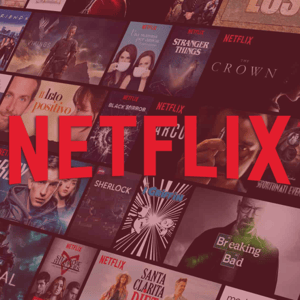
When people are lying, knowing the truth is an unfair advantage.


Building off of validated methods from business and academia, there is a way to know if and how much your audience is self-silencing.
Imagine a world in which leaders across business, politics, media, and philanthropy can peel back the curtain of self-silencing and make big bets.Maximize privacy and cut through bias with a validated survey method: the list experiment.
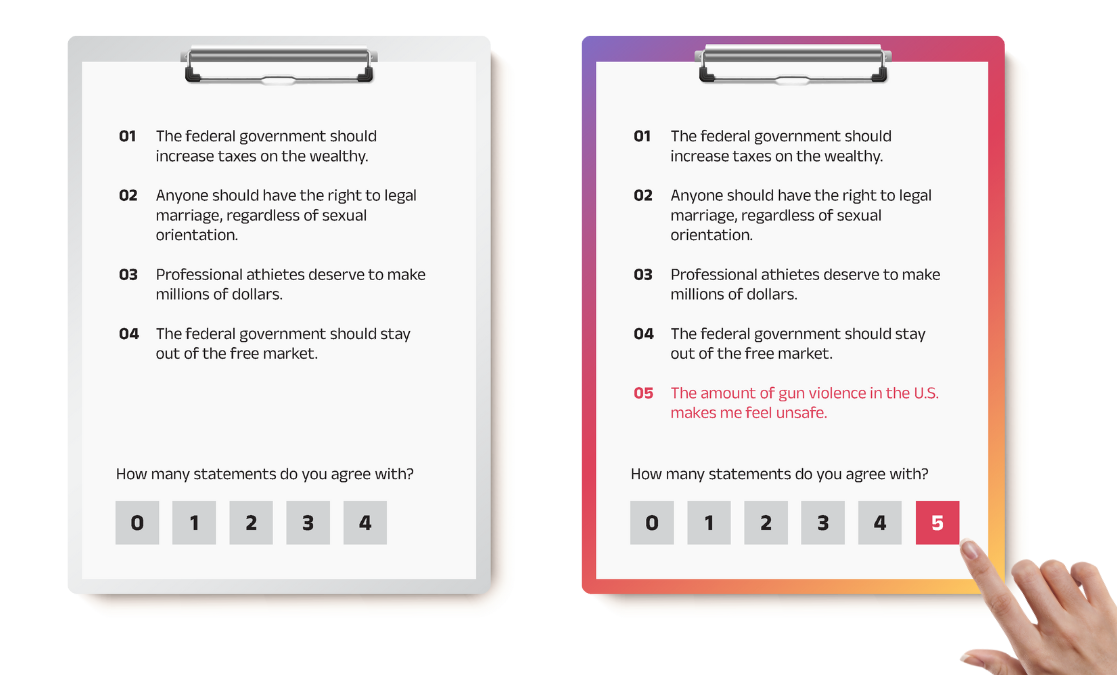
Uncover honest beliefs that are otherwise masked by traditional polling.
Americans of all generations are massively underreporting—in public—how reliable they think EVs are today. In private, a majority of Americans already think EVs are reliable for everyday use.
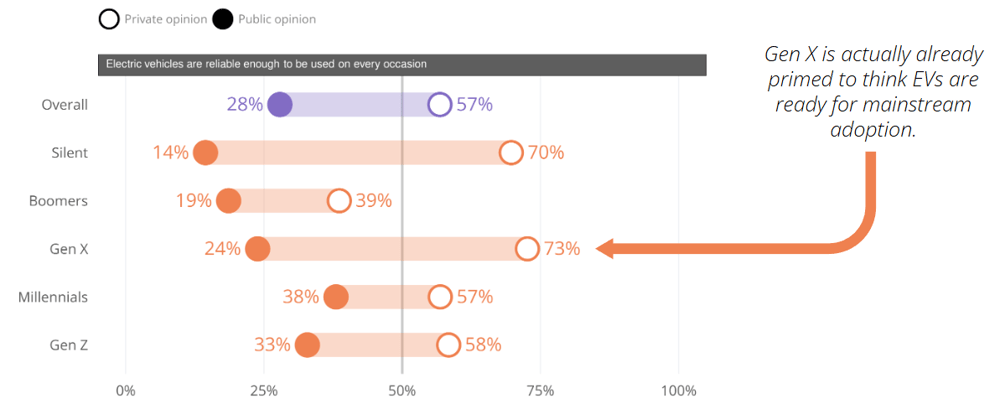
Independents and Republicans are more likely to withhold their private fear of gun violence in public opinion polls.
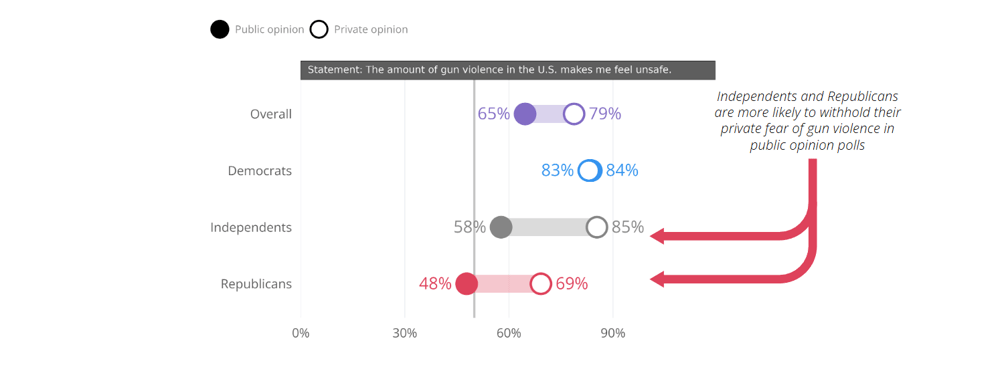
Support for CEOs taking a stand publicly or privately is low in absolute terms—but even still—Democrats feel a large degree of pressure to say that they want business leaders to speak up.
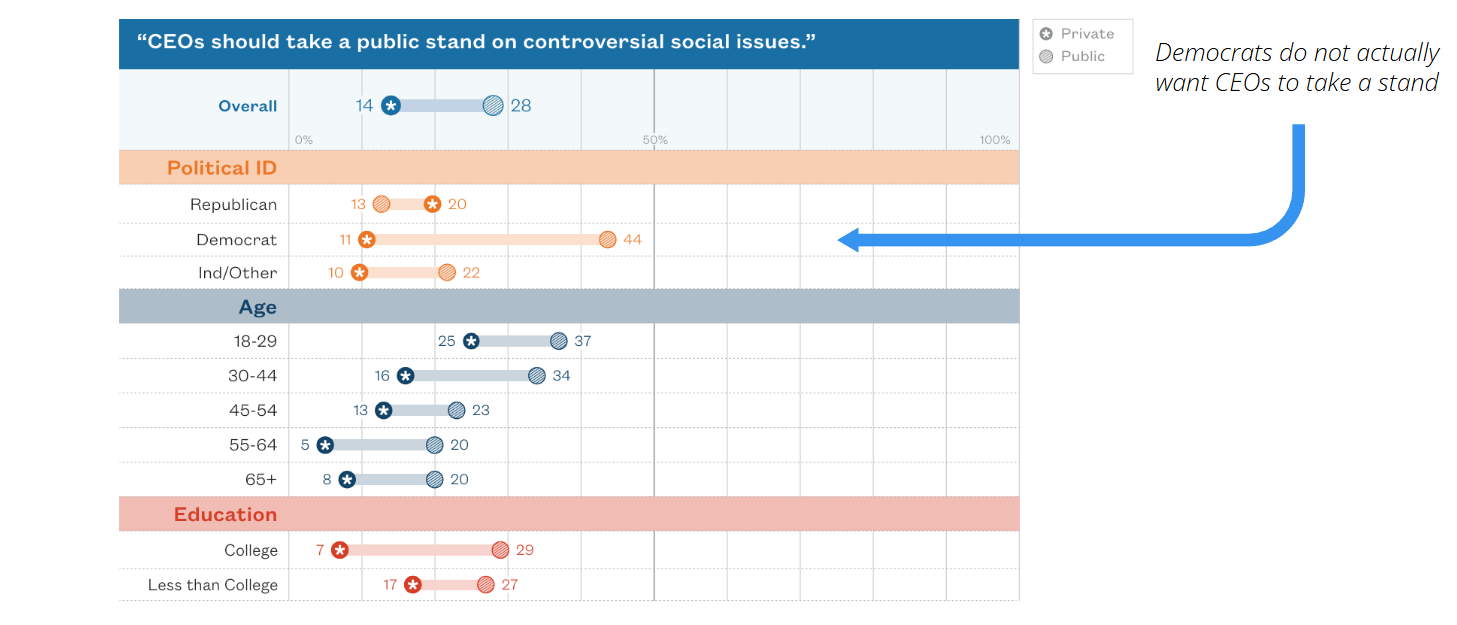
Support for promoting a social agenda through entertainment is divided. Whereas Republicans generally dislike it both publicly and privately, black people actually like it more than they let on publicly.
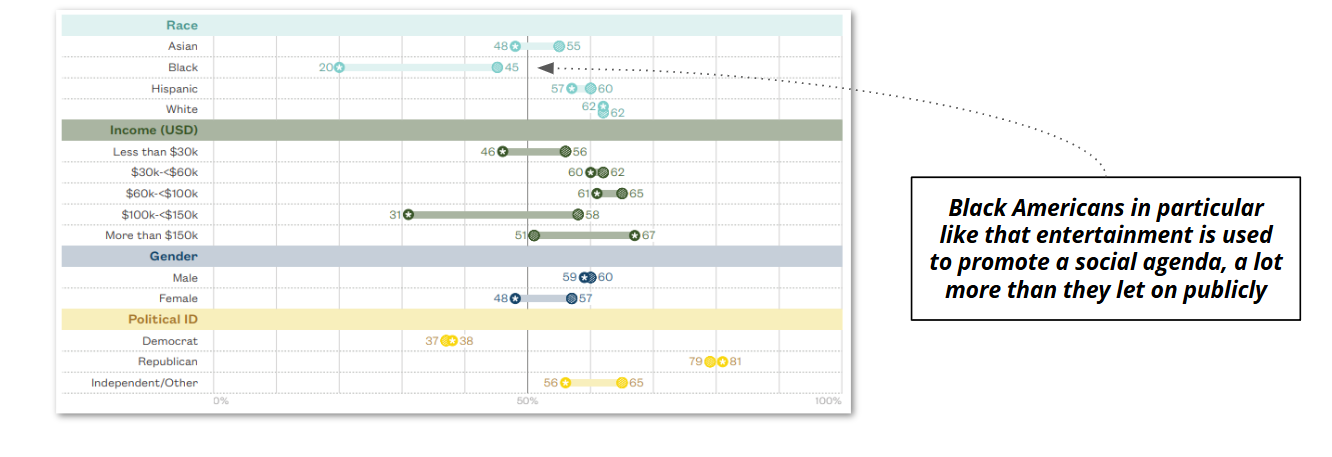
The cost of being wrong
- Opportunity cost: You waste time pursuing an issue voters don’t actually care about.
- Literal cost: You spend valuable resources courting or activating the wrong audience, which could result in a career-ending loss
- Negative perceptions: You don’t pursue an issue voters do really care about and appear out of touch.
- Backlash: You find yourself on the wrong side of an issue on which you thought you had solid footing.
What if...
- …Terry McAuliffe knew that most Virginia parents actually don’t trust teachers to make the best decisions for their children?
- … Universities knew that demand for a college degree and respect for a college education were plummeting before enrollment numbers begin to drop?
- … Republicans knew that support for access to abortions was unwaveringly high among women voters before positioning itself as the anti-abortion party?
- …Congressman Max Rose could have anticipated the electoral backlash he'd receive from joining a Black Lives Matter protest?
Success stories at a glance
